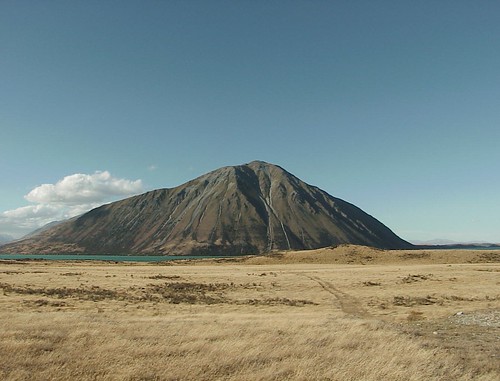New Zealand’s government announced in a statement on Nov.9 that it is not in the country’s interests to be “stuck in the Kyoto space for another eight years,” only a few weeks before nations met in Doha for the next round of climate negotiations. Like most Kiwis, I pride myself with New Zealand’s commitment to a “100 percent green and clean image.” But after hearing this latest news, I have never felt so embarrassed to be a New Zealander. For me, this disappointing decision reflects a failure not only by our policy-makers, but also negligence and indifference on the part of my fellow Kiwis to push our leaders for more leadership on climate change.

While New Zealand’s scorecard on international environmental treaties has consistently been far from satisfactory, especially after the recent embarrassment of being caught as the only country to oppose the protection of its own endangered Maui dolphin, it has now joined a host of countries that have also retreated from the Kyoto Protocol – the only internationally-binding agreement that addresses climate change.
Tim Groser, New Zealand’s Climate Change Minister, put the nail in the coffin when he said, “There is zero possibility of the United States joining Kyoto, so I think we’re in the right space.” In addition to the U.S., the “right space” includes countries like Canada, Japan, and Russia – all developed countries with significant economic and greenhouse gas (GHG) emission profiles. Do we want to be grouped with such notorious climate change spoilers?
It’s true that New Zealand is not a big player on the international climate stage in terms of our carbon footprint. Our emissions contribute to a little more than 0.1 percent of the global total, and any mitigation effort will probably unlikely to result in any perceivable change in the warming trend. But this shirking of responsibility shows New Zealand’s blatant disregard of the more urgent interests of other nations, especially those small island states on the verge of submerging.race to the bottom”.
Digging deeper, this decision is ultimately a revelation of the incumbent New Zealand government’s general lack of political vision and will to protect the environment, and ultimately, its own widely-perceived reputation as an environmentally-friendly and responsible nation. After the 2008 financial downturn and an earthquake in 2011 which caused damages in tens of billions, stimulating growth, creating jobs and balancing the sheet seemed to be thegovernment’s number one priority. Though these are all truly legitimate concerns, and thus should be afforded policy attention, our policy-makers must also recognise that sustainability does not need to be pushed off the window to make room for economic affluence. Unfortunately, this is not the case: Retreating from Kyoto Protocol is only part of a series of irresponsible policies introduced by the government to favour short-term benefits, which also included loosening the cap-and-trade scheme and encouraging shale fracking and deep ocean drilling.
Admittedly, the commitment to more rigorous climate policies may require a period of transition and re-adjustment, but New Zealand’s government must look beyond that. The current self-serving, myopic stance completely misses the long-term benefits of climate policies: driving innovation and providing impetus for businesses and industries to be leaner and more efficient. Given the increasing trend towards decarbonisation in other regions of the world, such as the E.U., striving for long-term competitiveness is the only sustainable path. Sooner or later, there will come a day when countries who are mitigating climate emissions and are investing in low-carbon innovation will come out ahead both economically and politically. New Zealand, on the other hand, will simply not be able to compete – it is time for the government to stop being short-sighted and realise that taking on a second period of mitigation commitments will provide the needed incentives for our economy to innovate for a lower carbon future.
At the root of all New Zealand’s failure in climate change leadership is the inadequate capacity brought on by a general lack of public awareness, and demand for environmental sustainability. Since the ultimate interests of the incumbent government in New Zealand is to get re-elected, they can only go so far in committing to ambitious climate change as the voters would allow. And with a three-year election cycle, the government is compelled to swiftly and continuously deliver auspicious economic figures. This mandate therefore significantly bridles the policy capacity of the government, which in this case arguably is the reason for New Zealand’s retreat from further emission cuts via the Kyoto Protocol.
Therefore, the public as well as the New Zealand government are both to blame. The government is to blame for taking a backseat in climate leadership when it is needed most – when 197 countries will meet in Doha to frame the next global climate agreement. But at the same time, New Zealand’s citizens should have demanded more leadership and action to address climate change. Simply put, we are all in this “hot air” together.